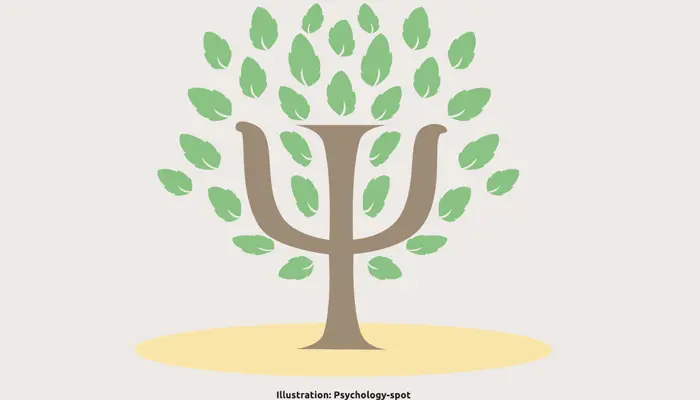
We tend to think that most events do not happen by chance, but have a logical explanation. That is why we look for reasons that explain the actions of the others and our own. We try to discover the causes of their behaviors. This search for causality takes us away from chance and allows us, on the one hand, to make sense of the world and, on the other, to predict future actions.
Assigning causes to an action is a phenomenon known as “attribution.” In fact, social psychologist Lee Ross said that we all behave like “intuitive psychologists” because we try to explain behavior and make inferences about people and the social settings in which they operate.
However, we are not usually “impartial psychologists” but we have a tendency to hold people responsible, minimizing the influence of context. Then we make the fundamental attribution error or correspondence bias.
What is the fundamental attribution error?
When we try to explain a behavior we can take into account both the internal factors of the person, as well as the external factors of the context in which that behavior is displayed. Therefore, we can attribute a behavior fundamentally to the predispositions, motivations, personality traits and character of the person, such as: “he has arrived late because he is lazy”, or we can take into account the context and think: “he has arrived late because there was a lot of traffic”.
Since nobody acts in isolation from their environment, the most sensible thing to explain behavior is to combine the influence of internal and external forces. Only then can we form an idea as objective as possible of all the factors that push someone to act in a certain way.
However, most people are victims of a bias and tend to overestimate the impact of motivational or dispositional factors while minimizing the influence of context, this is what is known as fundamental attribution error.
For example, remember a situation that you have probably experienced: you are driving calmly when suddenly you see a car at high speed that is overtaking everyone in a somewhat reckless way. The first thing that crosses your mind is probably not exactly flattering. You might think he’s an inconsiderate driver or even high on drugs. However, it could be a person who has a life or death emergency. However, the first impulse is usually to make judgments about the character, minimizing the environmental variables that could be determining the behavior.
Why do we blame the others?
Ross believed that we give more weight to internal factors simply because they are easier for us. When we do not know a person or their circumstances, it is easier to infer certain dispositions or personological traits from their behavior than to examine all the possible contextual variables that could be influencing their behavior. That leads us to hold him responsible.
However, the explanation is much more complex. Ultimately, we hold the others responsible because we tend to believe that behaviors fundamentally depend on our will. The belief that we are responsible for our actions allows us to assume that we are managers of our life, instead of being simple leaves moved by the wind of circumstances. That gives us a sense of control that we are not willing to give up. In practice, we blame the others because we want to believe that we have complete control over our lives.
In fact, the fundamental attribution error also rests in the belief in a just world. Thinking that everyone gets what they deserve and that if they encounter difficulties along the way it is because they have been sought or not tried hard enough, minimizes the role of the environment and maximizes internal forces. In this sense, researchers from the University of Texas discovered that Western societies tend to hold individuals responsible for their actions while Eastern cultures give more importance to situational or social factors.
The beliefs that are at the base of the fundamental attribution error can become very dangerous since, for example, we could blame the victims for the violence exerted on them or we could think that people marginalized by society are entirely to blame of its shortcomings. Due to the fundamental attribution error, we can believe that those who act “badly” are bad people because we do not care to consider contextual or structural factors.
For that reason, it is not by chance that the fundamental attribution error is amplified when we look for explanations for negative behaviors. When an event scares and destabilizes us, we tend to think that somehow, the victim is responsible. The prospect of thinking that the world is unfair and that some things happen randomly is simply too terrifying, as a study conducted at the University of Ohio demonstrated. In practice, we blame the victims because it helps us feel more secure and reaffirm our worldview.
This is confirmed by a study carried out by a group of psychologists from the universities of Washington and Illinois. These researchers asked 380 people to read an essay and explained that the topic had been chosen at random by tossing a coin, implying that its author did not necessarily have to agree with the content.
Some participants read a version of the essay in favor of labor inclusion policies and others against it. Then they had to indicate what was the attitude of the author of the essay. 53% of the participants attributed to the author the attitude that corresponded to the trial: pro-inclusion attitudes if the essay was affirmative and anti-inclusion attitudes when the essay was against those policies.
Only 27% of the participants indicated that they could not know the position of the author. This experiment reveals a blindness to circumstances and haste in judgment, which leads us to blame the others without taking into account the mitigating factors.
The fault is yours, not mine
Interestingly, the fundamental attribution error tends to be projected onto others, rarely onto ourselves. This is because we are victims of what is known as an actor-observer bias.
When we observe a person’s behaviors, we tend to attribute his actions to his personality or internal motivation, rather than to the situation, but when we are the protagonists, we tend to attribute our actions to situational factors. In other words, if someone misbehaves, we assume that he is a bad person; But if we are the ones who have behaved badly, it is due to circumstances.
This correspondence bias is not just because we try to justify ourselves and keep our ego safe, but because we know better the context in which the behavior in question has occurred.
For example, if a person pushes us in a crowded bar, we tend to think that they are careless or rude, but if we are the ones who pushed someone, we assume that it was because there was not enough space since we do not consider ourselves a careless or rude person. If a person slips on a banana peel, we think he is clumsy, but if we slip we will blame the peel. As simple as that.
Of course, we can also sometimes fall victim of the correspondence bias. For example, researchers at the Perelman School of Medicine found that some rescuers experience a great sense of guilt over the large number of deaths that occur after a disaster. What happens is that these people overestimate their power and the influence of their actions, forgetting all the variables that are beyond their control in catastrophic situations.
Likewise, we can blame ourselves for the misfortunes that happen to close people, although in reality our control over the circumstances and their decisions is very limited. However, the correspondence bias leads us to think that we could have done much more to avoid adversity, when in fact we did not.
How to escape the fundamental attribution error?
To mitigate the effects of the fundamental attribution error we need to activate empathy and ask ourselves: “If I were in that person’s shoes, how would I explain the situation?”
This change in perspective will allow us to completely modify the sense of the situation and the inferences we make about behaviors. In fact, an experiment conducted at the University of West of England found that changing perspective verbally helps us combat this bias.
These psychologists asked the participants questions that forced them to invert the points of view in different conditions (me-you, here-there, now-then). Thus they found that the people who received this training to change their perspective were less likely to blame others and took more into account environmental factors to explain what happened.
Therefore, we only have to see the behaviors with the light of empathy, really putting ourselves in the place of the other to try to understand them through their eyes.
That means that the next time we are about to judge someone, we must remember that we could be victims of the fundamental attribution error. Instead of blaming him or thinking that he is a “bad” person, we should simply ask ourselves: “If I were that person, why would I do such a thing?”
This change in perspective will allow us to become more empathetic and understanding people, people who do not go through life judging others, but who have sufficient emotional maturity to understand that nothing is black or white.
Sources:
Han, J., LaMarra, D., Vapiwala, N. (2017) Applying lessons from social psychology to transform the culture of error disclosure. Medical Education; 51(10): 996-1001.
Hooper, N. et. Al. (2015) Perspective taking reduces the fundamental attribution error. Journal of Contextual Behavioral Science; 4(2): 69–72.
Bauman, C. W. & Skitka, L. J. (2010) Making Attributions for Behaviors: The Prevalence of Correspondence Bias in the General Population. Basic and Applied Social Psychology; 32(3): 269–277.
Parales, C. (2010) El error fundamental en psicología: reflexiones en torno a las contribuciones de Gustav Ichheiser. Revista Colombiana de Psicología; 19(2): 161-175.
Gawronski, B. (2007) Fundamental Attribution Error. Encyclopedia of Social Psychology; 367-369.
Alicke, M. D. (2000) Culpable control and the psychology of blame. Psychological Bulletin; 126(4): 556–574.
Ross, L. & Anderson, C. (1982) Shortcomings in the attribution process: On the origins and maintenance of erroneous social assessments. Conference: Judgment under uncertainty: Heuristics and biases.
Ross, L. (1977) The Intuitive Psychologist and His Shortcomings: Distortions in the Attribution Process. Advances in Experimental Social Psychology; (10): 173-220.



